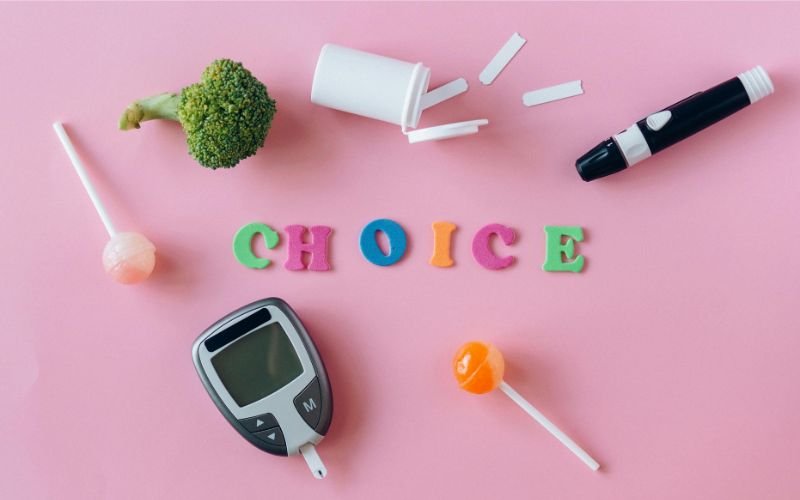Hormones are the body’s chemical coordinating messengers, organizing everything from digestion and proliferation to mood and energy levels. Hormonal balance is fundamental for the maintenance of general prosperity and thriving. Unfortunately, way of life, stress, and undesirable dietary choices can upset this delicate harmony, provoking issues like pain, weight gain, mood swings, and persistent sicknesses.
A hormonal diet balance can play a critical part in supporting the body’s regular cycles and reestablishing harmony. This complete article dives into the standards of hormonal balance through nourishment, offering experiences in food varieties that elevate balance and those to avoid.
Understanding hormonal balance
Hormones are natural chemical messengers that are integrated by endocrine tissues, including the thyroid, pancreas, adrenals, and gonads. They travel through the blood circulatory system, leading to different metabolic cycles. A hormonal irregularity happens when there is over-secretion or lack of a chemical, which can initiate clinical issues.
Key hormones and their functions
- Insulin: Controls glucose levels in blood and energy regulation.
- Cortisol: The fundamental stress hormone that influences gut health and the immunity process.
- Estrogen and Progesterone: They are fundamental to controlling the female reproductive system’s well-being and the female monthly cycle.
- Thyroid hormones: Manage ATP regulation and overall digestion.
- Leptin and Ghrelin: These chemicals control food desires, cravings, and satiety signals.
Understanding hormonal imbalance
The over-creation or lack of a particular hormone in the blood can prompt hormonal imbalance in the body. Since these chemical messengers are fundamental for directing many bodies’ metabolic cycles, even a slight imbalance can have deleterious impacts. Normal side effects include:
- Exhaustion
- Weight gain or misfortune
- State of temperament changes or mood swings
- Sleep disorders
- Irregular menstruation
- Skin issues like acne, scars and pimples
Conditions, for instance, PCOS, thyroxine deficiency, and adrenal disturbance most commonly related to hormonal imbalance. Lifestyle factors like tension, sedentary lifestyle, and unhealthy food choices can further increase these medical problems.
The connection between diet and hormones
The food varieties we eat significantly influence hormone mechanisms, regulation, and overall function. Research published in the NIH journal suggests the link between nutrition and hormonal equilibrium. Supplements from our eating regimen act as the raw components for hormone synthesis and impact how successfully they interact with cells to provide hormonal imbalance solutions.
Key nutritional pillars of hormonal balance
- Stable blood sugar levels: Fluctuations in glucose can prompt insulin sensitivity, weight gain, and exhaustion. Balanced meals that incorporate complex sugars, protein, and healthy fats assist with directing glucose levels.
- Gut health: A healthy stomach microbiome improves chemical digestion and detoxification. Probiotic and prebiotic-rich food sources upgrade stomach flora and work on hormonal regulation.
- Anti-inflammatory foods: Persistent inflammation upsets chemical capability. Anti-inflammatory food varieties like omega-3 unsaturated fats, berries, and mixed greens moderate these impacts.
- Liver support: The liver directs RBC formation and lessens blood toxicity. Different food sources rich in supplements, fibers, flavonoids, and cell reinforcements, help the liver to detoxify chemicals.
Foods to include for hormonal balance
Supplement-rich food sources should be part of the eating regimen to keep up with hormonal diet balance.
Healthy fats: Cholesterol and healthy fats help in estrogen, progesterone, and testosterone formation. The unsaturated fats are central for genital health, plasma layer improvement, hormonal capability, and reduced irritation.
- Best Sources: The potential food sources to be recollected in the diet for sound fats admission include almonds, nuts, berries, chia seeds, salmon, leafy greens, olive oil, and coconut oil.
High-quality proteins: Protein catabolism releases amino acids, which are further used for hormone synthesis. These hormones regulate endocrine gland function, blood hormonal balance, blood calcium homeostasis, and insulin levels.
- Best Sources: The potential food items to be recalled in the diet for high protein quantity include eggs, lean meats, fish, vegetables, tofu, and tempeh.
Cruciferous vegetables: These organic foods contain high amounts of indole-3-carbinol, which not only lessens estrogen levels but also helps the liver detoxify harmful chemicals.
- Food sources: The best cruciferous vegetables that regulate hormone levels include broccoli, cauliflower, sprouts, kale, and cabbage.
Fiber-rich foods: Fibers in various food sources improve defecation, advance stomach well-being, balance estrogen reabsorption, and eliminate extra hormonal secretion.
- Best Sources: Entire grains, beans, lentils, natural products (apples, berries), and vegetables (carrots, artichokes).
Fermented foods: Probiotics further develop stomach capability, consequently affecting cell utilization of stomach-digested items and keeping up with hormonal diet balance through further developing the hormone detoxification process.
- Food sources: The potential food items to be recalled in the diet for maximum probiotics intake include yogurt, tempeh, kimchi, seaweed, and miso.
Micronutrients: The most common among them are;
- Vitamin D: It is necessary for thyroid and gonads hormone regulation. Sources include exposure to sunlight, fortified food sources, and fatty fish.
- Magnesium: Maintains cortisol levels. Can be tracked down in mixed greens, nuts, seeds, and dark chocolate.
- Zinc: Fundamental for reproductive hormones wellbeing. Can be tracked down in shellfish, nuts, and seeds.
- B vitamins: Basic for energy release and hormone formation. Vitamin B food sources include whole grains, eggs, and mixed greens.
Antioxidant-Rich foods: High oxidant levels can disturb hormone synthesis, so antioxidants work to reduce toxicity by overcoming reactive oxidative stress and improving endocrine tissue functioning.
- Best Sources: The foods to be recollected in the eating regimen for high antioxidant intake include berries, dark chocolate, green tea, nuts, and seeds.
Adaptogenic herbs: Adaptogens are the compounds present in various spices that control stress and tension by decreasing cortisol levels, in this manner, they help the adrenal gland function by decreasing persistent stress. Research published in the Journal of Functional Foods has studied the effect of nine adaptogenic herbs that regulate the cortisol pathway in mentally stressed individuals to reduce stress.
- Food sources: The best herb sources that contain high amounts of adaptogens include ashwagandha, maca root, and basil.
Omega-3 fatty acids: Food sources like greasy fish, flax seeds, canola oil, and nuts, help to keep up with blood hormonal profile, further develop sensory system wellbeing, and decrease irritation, as these are rich wellsprings of omega-3 fats.
Complex carbohydrates: These starches keep up with glucose levels more productively than basic carbs. Food combinations like yams, oats, and earthy-colored rice are marvelous decisions for sustaining complex carbs in the diet.
Foods to avoid for hormonal balance
These food varieties must be avoided at the maximum level to achieve hormonal diet balance.
- Refined sugars and carbohydrates: An increase in blood sugar causes insulin spikes and adds to weight gain and insulin opposition. Soft drinks, baked goods, white bread, and confectionaries are enriched with refined sugars. These food sources should be avoided as they prompt hormonal imbalance and cause irritation.
- Processed foods: Highly processed food varieties frequently contain undesirable fats, added substances, and additives that disturb hormones. These processed packaged snacks, frozen feasts, and cheap food sources promote irritation and obstruct the hormone-signaling process.
- Alcohol: Unnecessary liquor utilization loads the liver, impairing its capacity to detoxify chemicals. It slows down estrogen regulation and disturbs cortisol levels.
- Caffeine: High caffeine admission can lift cortisol levels, disturbing rest and stress chemicals, which in turn decreases adrenal capability and increases imbalance in hormone synthesis.
- Dairy and gluten: For certain people, dairy and gluten trigger inflammation and chemical interruptions. Especially risky for those individuals suffering from PCOS or thyroid issues.
Hormonal balance and specific conditions
Polycystic ovary syndrome (PCOS): Over secretion of androgen hormone and insulin disturbance can lead to PCOS.
- PCOS diet tips: A balanced diet with reduced fats, glycemic content, and spices can help to avoid PCOS. Enrich your diet with whole-grain food varieties rather than refined carbs.
- Research published in the National Library of Medicine journal suggested that almost 4 to 18% of women suffer from PCOS. With effective regular exercise and lifestyle changes there is a significant balance in androgens levels, insulin sensitivity, and weight management for PCOS females.
Thyroid disorders: Thyroxine chemicals manage metabolism. Dietary deficiencies can hinder thyroid capability.
- Diet tips: Guarantee satisfactory iodine, selenium, and zinc consumption. Cruciferous vegetables can increase the possibility of goiter in people with iodine deficiency.
Menopause: At menopause, the female body goes through different hormonal changes prompting unexpected temperament changes, profound aggravation, and weight gain.
- Diet tips: To deal with the estrogen and bone mineral levels, dietary food varieties having calcium, vitamin D, and phytoestrogens like soy seeds, and flax seeds should be preferred.
Meal plan for hormonal diet balance
Hormone-friendly recipes must be a part of your diet that acts as natural hormone boosters.
Breakfast
- Smoothie: Mix spinach, a modest bunch of blended berries, chia seeds, almond spread, and unsweetened almond milk.
- Alternative: Entire grain bread with avocados and poached egg.
Snack
- An assorted bowl of nuts or a variety of seeds, or a yogurt bowl with chia seeds.
Lunch
- Various green vegetable bowls with barbecued salmon and lemon oil dressing or you can have lentil soup with pan-seared broccoli.
Snack
- Finely diced fresh vegetables including carrots, cabbage, and capsicum with hummus.
Dinner
- Entrée: Grilled chicken or tofu with stewed potatoes and stir-fried asparagus.
- Alternative: Pan-seared tempeh with blended vegetables and brown rice.
Dessert
- A little piece of dark chocolate (70% cocoa or higher).
Lifestyle habits to support hormonal balance
- Stress management: Constant pressure raises cortisol, upsetting different hormone levels. Integrate care, yoga, or contemplation into your daily practice.
- Regular exercise: Physical activity helps to balance weight which improves insulin sensitivity and reduces stress.
- Sleep hygiene: Get good sleep for about 8 hours daily, which ultimately promotes the synthesis of various hormones.
- Limit environmental toxins: Limit exposure to endocrine-disrupting chemicals (EDCs) tracked down in plastics, pesticides, and certain personal care items.
- Hydration: Proper hydration is fundamental for productive hormonal metabolism and transport.
Supplements for hormonal health
While a reasonable eating regimen is essential, supplements can assist with filling nourishment levels for a healthy hormonal diet balance.
- Omega-3 Unsaturated fats: Lessens irritation and swelling.
- Vitamin D: Supports thyroid and reproductive hormones.
- Magnesium: Reduces pressure and further develops rest.
- Probiotic shots: Upgrade stomach wellbeing.
Always consult a medical services supplier before beginning supplements.
Hormone balancing support
Hormonal diet balance is a strong and regular way to deal with improving well-being and prosperity. By consolidating supplement-rich food varieties, keeping away from toxic substances, and adopting healthy habits, you can encourage an agreeable hormonal framework. Consistency and care in your dietary decisions can prompt enduring advantages, advancing strength and versatility even with life’s difficulties.
“On the off chance that you experience a determined hormonal disturbance, consult a medical care professional or dietitian for personalized hormonal imbalance solutions according to your necessities.“


